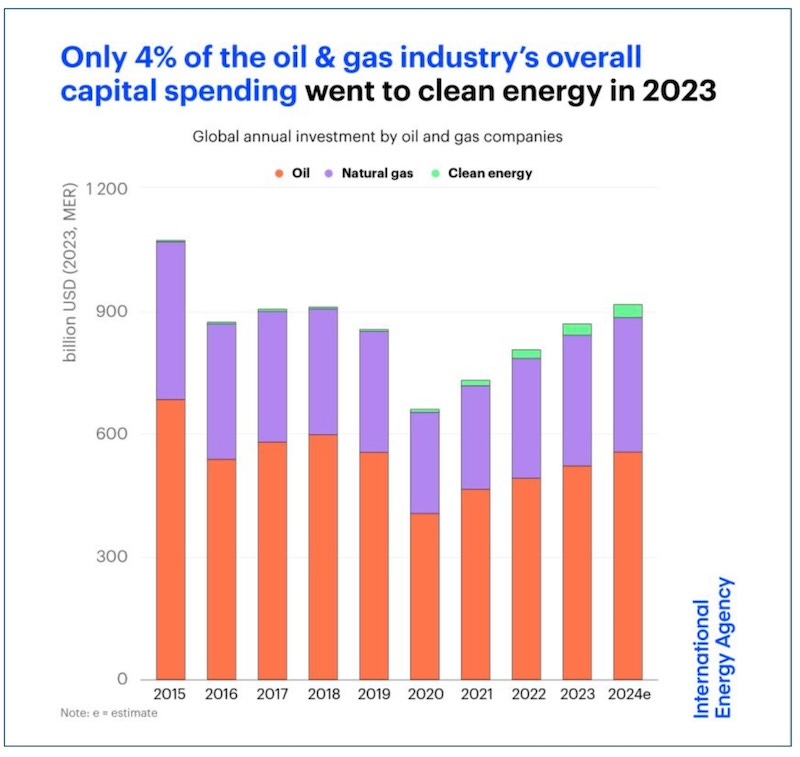End of the Partnership: What Do You Do When There’s Nothing More to Do?
There won’t likely be a federal election tomorrow. But it’ll take new strategies to keep climate on the agenda with the government on life support and opposition parties looking for quick wins.
Every government, everywhere, of every political stripe eventually reaches the point where it’s past its best before date. When that happens, the policies that government introduced can be collateral damage when the incoming new broom decides to sweep clean.
Now, the policies most at risk include the current Canadian government’s response to climate change—its slow, inconsistent, but gradually more assertive moves to get the country’s carbon emissions under control and shift to a clean energy economy.
Public opinion in Canada last turned decisively against a sitting government in 2015, when “sunny ways” became the catch phrase for a future that didn’t include “barbaric cultural practices” snitch lines or remaking the country as a global fossil energy superpower.
But that was then. This is now. Not only are we long past the days of “sunny ways”. We’re long past the point where any columnist, anywhere, ever should even bother writing those words.
There are telltale signs of a government running out of time, and they cross political lines. Their announcements are more performative, less substantive. The big dollar commitments ring hollow because they’re meant to be delivered after an election that no one expects them to win. Veteran cabinet ministers and backbench MPs announce they won’t be running for re-election, whether because they’re genuinely tired or know they can’t win again. Senior campaign officials, including architects of past electoral victories, abandon ship.
With NDP leader Jagmeet Singh’s announcement this week that he’s ripping up a 2½-year governing agreement with Prime Minister Justin Trudeau’s Liberals, the pendulum swing is picking up steam. One of the burning questions that raises is where climate and energy policy will land, and how Canada’s climate momentum can be sustained and accelerated, as the wider political drama unfolds.
Singh Pulls the Plug
Singh had a few reasons to pull the plug when he did.
Global News says provincial NDP leaders across the western provinces, two of them facing tough elections this fall, were sick of being tethered to Trudeau via the federal party’s deal with an unpopular federal government. In Alberta, newly-minted NDP opposition leader Naheed Nenshi was not the only provincial leadership candidate who suggested breaking formal ties with the federal New Democrats.
“It’s about time,” said Saskatchewan NDP leader Carla Beck, after Singh’s latest announcement. Beck faces provincial voters in October, trying to break the hold on provincial politics that Scott Moe’s Saskatchewan Party has enjoyed since 2007.
Opinion writer and former federal NDP leader Tom Mulcair says Singh was motivated by the two by-elections coming up September 16—the seat he must hold in Winnipeg-Transcona, and the one he has a chance of wresting away from Trudeau’s Liberals in La Salle-Émard-Verdun, a Montreal-area riding and one-time stronghold of former PM Paul Martin.
“They say that all politics is local,” Mulcair writes (although the counter-argument is that that’s how government dies). And “my sources tell me that on the doorstep, his candidate’s volunteers have been getting an earful about Singh’s support for Trudeau.”
But the calculus wasn’t purely political. The NDP also reportedly had a sense that the partnership had achieved all that it could.
At first, “the NDP thought it could be seen as extracting concessions from the Liberals—action on climate change, reconciliation, affordable housing, and big dream items such as a new national dental care program, progress toward universal pharmacare, and a ban on the use of ‘scabs’ during lockouts or strikes—in return for its continued support,” writes Toronto Star national columnist Althia Raj. “But as the deal wore on, it became less of a blessing and more of a liability. In June, Singh’s team concluded there was little left to accomplish. They had extracted all they thought they could get from it.”
CBC picked up that same sentiment directly from NDP House leader Peter Julian. "It's fair to say, members of caucus understood we've kind of hit this limit in what the Liberals are prepared to do," he told the national broadcaster’s chief political correspondent Rosemary Barton.
A Moment of Paralysis
So it turns out that, as Trudeau and his “relentless and insufferable optimism” became a lightning rod for public frustration and impatience, the Liberals’ partners in the House of Commons were picking up the same sense of paralysis we’ve seen in recent climate policy announcements.
Like the long-awaited green buildings strategy that set no net-zero target.
Or the highly-touted capital funding for local transit systems that doesn’t take effect until 2026 and provides not a penny for day-to-day operating funds, prompting Vancouver’s TransLink to announce that it’ll have to cut services by 50% and cancel about 145 of its 230 bus routes unless it can cover costs.
Or the ridiculously hard-fought sustainable jobs bill that set the stage for worker involvement in the green transition, but didn’t actually create a single front-line job.
In his latest call to action to the wider climate community, Seth Klein, team lead at Canada’s Climate Emergency Unit and author of A Good War: Mobilizing Canada for the Climate Emergency, traces the “familiar script”.
The government issues a consultation paper or holds hearings on some topic, and we dutifully spend time and resources making submissions that may or may not result in some modest revision.
The government tables draft legislation, we spend months mobilizing our members to lobby for improvements to the bill, we extract a few amendments… and claim the win. It’s deep in the weeds, and it’s all on their agenda and timeline.
We have spent huge resources winning legislation—the Sustainable Jobs Act, the Climate Accountability Act—that, while positive, are ultimately of little climate or political consequence, and unknown to the public.
All of which would be okay, just business as usual, if business as usual were okay in the middle of a cascading global emergency.
In the end, the current government burned through nearly a decade that we couldn’t afford to waste in the fight against climate change, squandered boatloads of precious political capital on a consumer carbon tax that was arguably destined to fail, and gave Conservative leader Pierre Poilievre the perfect hook to mobilize supporters with his ridiculous three-syllable rhymes.
Now, the big question is what’s next.
‘Climate, And…’
The end of the NDP-Liberal agreement means the government will have to negotiate for support in the House of Commons, every time it wants to get anything done. If it loses a major vote on a matter of confidence, that’s enough to trigger an election.
But that doesn’t mean the next campaign is around the corner. The consistent takeaway from various news analyses is that Singh won’t want to go to the polls until his party has had a chance to ramp up fundraising, gain some time to differentiate itself from the Liberals, and try to rack up some wins it can take credit for on the campaign trail.
“The next few months are guaranteed to be rockier but, unless the parties miscalculate, this announcement won’t bring much immediate change,” Raj writes for the Star.
So if Singh is looking for tangible wins, what can the climate community bring to the table?
Start with pressing the government on its proposed cap on oil and gas emissions. A final draft of the Clean Electricity Regulations that gets the job done. Adequate funding for community-based climate adaptation efforts, without diverting dollars from emission reduction efforts. Action on nature conservation and biodiversity loss. And courageous commitments in Canada’s 2035 emissions reduction pledge under the Paris climate agreement, and on international climate finance. Even though those commitments will extend far beyond the life of this government, or even the next one.
There are also smaller but still significant local and provincial campaigns, like the five-point plan to make housing more affordable in Ontario without settling for expensive, high-emitting sprawl development.
But with Canadians attaching less importance to climate solutions, and the government that championed them on life support, getting any political party’s attention in a tense pre-election period will depend on a “climate, and…” message.
On showing that affordable housing is about driving down monthly energy bills with an electric heat pump, not just reducing the initial cost to build or renovate a home.
Or that gradually getting Canada’s devastating and now entirely foreseeable summer season of drought, wildfires, and heatwaves under control depends on scaling back fossil fuel emissions, not just anticipating and trying to minimize the front-line impacts.
Along the way, climate hawks should hope and expect to be connecting more and more with unexpected allies outside the usual “bubble” of climate concern, listening closely for common ground, and recalibrating agendas and messages to support those new, wider alliances. Much of that work is already under way. It takes time, effort, flexibility, and maturity.
It’s also the surest way to keep on moving forward, in a period of minority government and after the dust has settled on the next federal election.
Mitchell Beer traces his background in renewable energy and energy efficiency back to 1977, in climate change to 1997. Now he and the rest of the Energy Mix team scan 1,200 news headlines a week to pull together The Energy Mix, The Energy Mix Weekender, and our weekly feature digests, Cities & Communities and Heat & Power.
Chart of the Week

Affordable EVs ‘On Verge of Extinction’ as PBO Raises Cost Concerns
Ontario Opens Door to New Gas Plants with ‘Energy Agnostic’ Power Procurement
Utilities Campaign Against Clean Grid Regulations as Defenders Dig In
495-MW Buffalo Plains Wind Farm, Canada’s Biggest, Delivers First Power to Alberta Grid
Scientists Urge Hope as Climate Crisis Reaches Critical Crossroads
New Online Map Tracks Costs of Climate-Related Disasters Across Canada
Houthi Rebels Risk Major Oil Spill with Attack on Red Sea Tanker
New Battery Recycling Plant, Iron-Air Storage Project Boost U.S. Energy Autonomy
Trans Mountain Produces 10x Increase in Vancouver Tanker Traffic, Raises Fears of Oil Spills
Jasper wildfire latest disaster in climate claim deluge facing Canada's insurance sector (Canadian Broadcasting Corporation)
Chevron-Backed Carbon Capture Firm Gets Up To $100 Million from Canada (Bloomberg)
Peace Valley farmer speaks about losing his property to the Site C dam (Canadian Broadcasting Corporation)
Profits from community windfarm to fund a million native trees in Hebrides (The Guardian)
Quebec's 'super minister' of economy and energy resigns from cabinet (Canadian Broadcasting Corporation)
ArcelorMittal Dofasco misses key milestones in $1.8B 'green' steel project promised for 2028 (Canadian Broadcasting Corporation)
Biden Administration Backs Plastic as Coal Replacement to Make Steel. One Critic Asks: ‘Have They Lost Their Minds?’ (Inside Climate News)
Business Group Sues Texas Officials Over Law That Shields Oil Industry (New York Times)
‘Dark’ tanker crash exposes dangers of China’s thirst for cheap oil (Washington Post)
Sanctioned oligarchs take stake in largest UK oil firm (British Broadcasting Corporation)
Scientists explore impact of offshore wind farms on seabed (The Independent)
As the Amazon’s Biggest Champion Approaches 100, He’s Still Fighting (Bloomberg)








I offer the following slogans in reply to PP and my Alberta government
Stop the Con
No Policy Pierre
Store megawatts not carbon